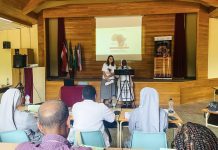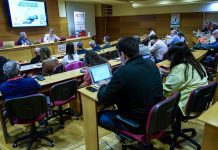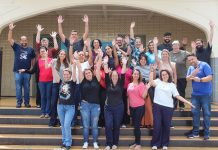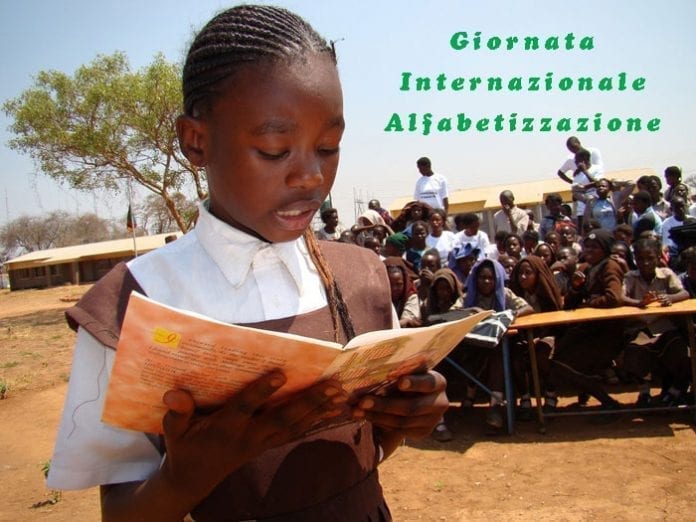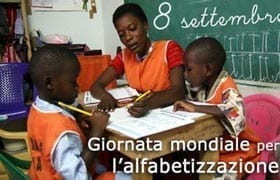
Rome (Italy). International Literacy Day is celebrated on September 8th. The theme chosen for the 2018 event is “LITERACY AND DEVELOPMENT OF COMPETENCES”.
This day was instituted to raise awareness in governments and civil society on the need to invest more and more in education, to commit to increasing the rate of literacy, and to reflect on the problems and challenges to be faced in this field.
Literacy is a key aspect to achieving the Sustainable Development Goals within the Agenda 2030 mark. The sustainable development goals, endorsed by the world leaders in September 2015, promote both universal access to quality education, and learning opportunities throughout the life of people. In particular, the UN reiterates that one of the goals of Objective 4 is to ensure that all young people learn to read and write, have a basic understanding of arithmetic, and that adults who lack this knowledge have the opportunities to acquire them.
In her message (link http://www.opam.it/1/international_literacy_day_4187836.html) for the Day of the Director General of UNESCO, Audrey AZOULAY reveals the current challenges in the field of literacy:
“Today, over 260 million children and adolescents worldwide are not enrolled in school; six out of ten children and adolescents – about 617 million – do not acquire the minimum skills in literacy and calculation; 750 million young people and adults still cannot read and write – and among these two thirds are women. These severely debilitating shortcomings lead to a de facto exclusion from society and perpetuate a spiral of social inequality and gender inequality.
To this is added a new challenge: an evolving world, in which the pace of technological innovation is constantly accelerating. To find a place in society, get a job, and respond to social, economic, and environmental challenges, traditional literacy and calculation skills are no longer sufficient; new skills, including information and communication technologies, are becoming increasingly necessary.
Preparing young people and adults for jobs, most of which have not yet been invented, is a challenge. Being able to access lifelong learning, taking advantage of the paths among the different forms of formation and benefiting from the greater opportunities for mobility have therefore become indispensable […] On this International Day, I invite all the interested parties in the world of education, and not only them because it is a cause that affects us all, to mobilize so that the ideal of a fully literate global society becomes more of a reality. “
International Literacy Day is important for the Institute of the Daughters of Mary Help of Christians whose mission is Education. For every FMA as an educator, it is an opportunity to enhance and promote literacy in schools and literacy centers around the world that welcome the poorest and neediest. It is a way to reflect on how to give quality and be innovative for an integral education that affects a large number of children, young people and adults.




